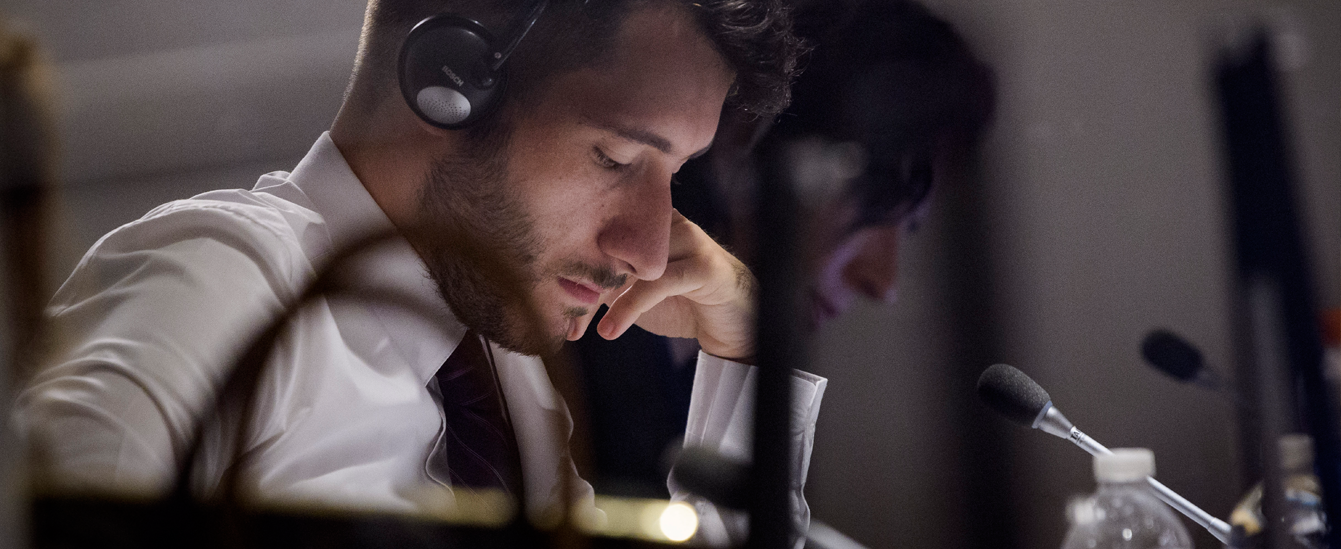
A day in the life of a conference interpreter
An illustration in three acts
ACT I - the evening before
- The day usually begins the evening before when you make your final preparations and lay out everything on your desk or dresser for the next morning or, if working away from home, when you arrive at the hotel, contact colleagues and check your email for conference documents. Set your own alarm wherever you are as hotel systems are not always reliable;
- Wake up, allow yourself one delicious stretch in bed and then hit the shower. Skip the perfume/aftershave as your boothmate may have allergies. Go down to breakfast and exchange the latest information with colleagues;
- Make sure you are familiar with the social media policy. Some organisations will encourage you to post that you are there. Others won’t! Never post anything you see or hear;
- Make sure you’ve got everything you need for the meeting in hard copy or readily available electronically: contract, city map, documents. Don’t forget to take your own paper and pen. Set out in good time if you don’t know your way around;
- Make sure you’ve checked the news. You never know when a delegate will refer to a breaking story;
- At work, locate the booths, greet colleagues and introduce yourself to the technician;
- Make sure you’re familiar with the equipment: turning the mic on and off, using the cough button, operating the relays, etc. Locate a discreet route to the toilets;
- Put your devices in silent mode and say goodbye to social media until lunch;
- Now concentrate: it’s not about words...
- Relax and take a deep breath before you turn on the mic.
ACT II - Lunchtime
- Lunchtime. Thank your colleagues for their stellar relay, as appropriate. Take the opportunity to disconnect from the conference. Some people enjoy having lunch with colleagues, others prefer to be alone and escape into a book… or their phones;
- Get some much-needed fresh air: take a walk;
- Clear up questions arising from the meeting with colleagues. Interpreting is teamwork;
- Check your email for any last-minute updates, conference documents, etc.
ACT III - Afternoon
- Back to work. You have to sympathise with the first speaker after lunch, addressing post-prandial delegates. They call it the “graveyard slot”;
- Listen, concentrate, think, and speak. Whilst speaking, listen, concentrate and think. A challenging intellectual loop;
- The meeting ends;
- Pack up. Leave your booth tidy. Dispose of any hard copy documents appropriately;
- Say goodbye to your colleagues, thank the technician and the colleague who recruited you;
- Get home safely;
- Then enjoy some restorative silence to de-clutter your brain.
Epilogue
- So, what did they talk about in the meeting today?
- You know I can’t tell you.
- Is it a secret?
- Well, it was a private meeting by invitation only. It was their business, nobody else’s.
See also: Conference Interpreting: confidentiality and the use of social media (from London Metropolitan University)